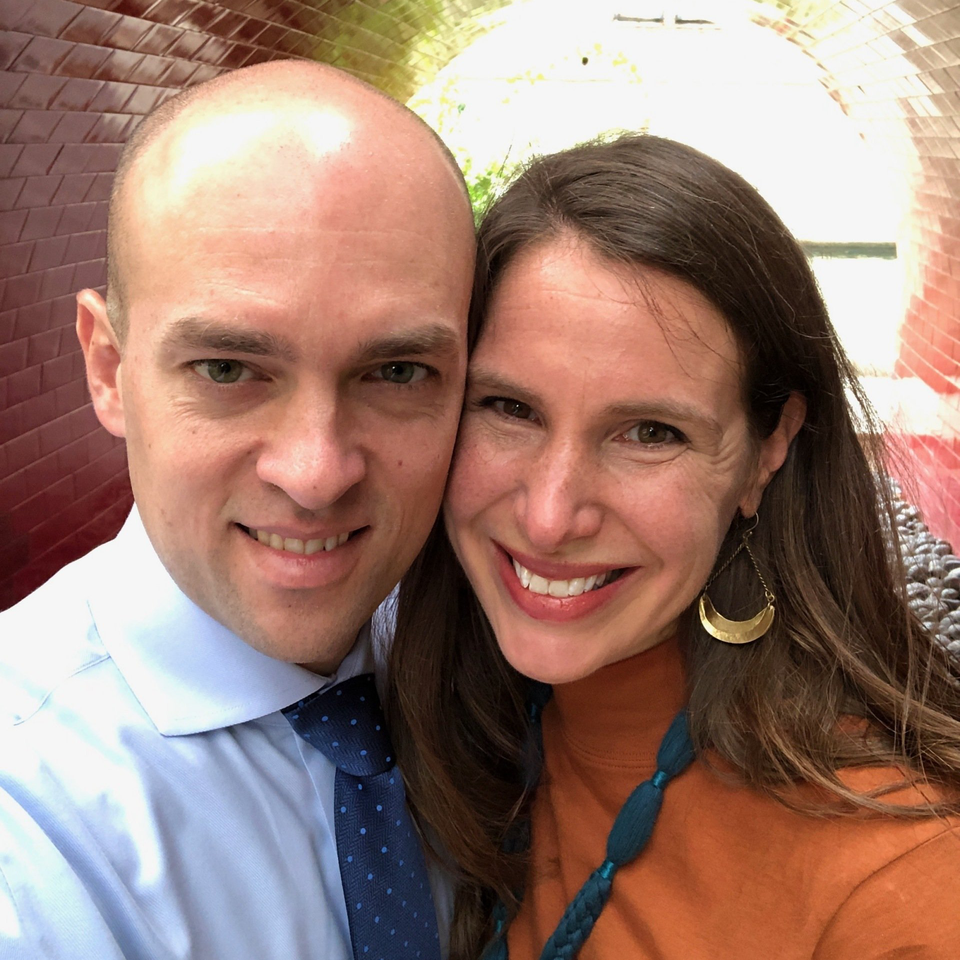Advocate Spotlight: Simeon & Laura Sutton
June Advocate Interview

1. How long have you been an Advocate and when did you realize you wanted to become one?
We became advocates in February, 2019. We experienced some things in our extended family that made us re-evaluate how we were spending our time. As we considered our values, there was no question that CASA was the right organization for our volunteer commitment. Simeon filled out the volunteer application the same night he discovered CASA.
2. What is the most rewarding aspect of being an Advocate?
We experienced the power and love of CASA while supporting our CASA children during their moments of pain and fear. We supported them when they cried at the end of parent visit, we supported them when they were transported to a shelter, we supported them when they were alone at the shelter, and we supported them when they lashed out hitting and screaming. It has been our highest calling and most fulfilling life moments to advocate on behalf of the most vulnerable children in our community.
As a result of our advocacy, our children avoided placement in another shelter, and were instead placed with their grandmother who loves and cares for them. Our case had a happy ending with reunification with the children’s family.
3. If you could offer words of encouragement to your fellow and incoming Advocates, what would they be?
CASA is a first class operation. Their relationship with the Court and the larger community is stellar, so know that you are joining a highly respected organization in the city.
Being new to the world of social work and foster care, the CASA training was overwhelming – but excellent preparation for our role as advocates. The support from our advocate supervisor was above and beyond our expectations. Our supervisor was on call to offer support and advice. Know that your supervisor is there to support you and that you are not alone.
It also helped making friends in the CASA training class. You will need people to lean on during the cases. It created a community of support.

In November 2025, Child Protective Services received a referral involving two sisters, ages 13 and 14, who were found caring for themselves. Following the death of their father, the girls experienced ongoing abuse and neglect. They were living in unsafe and unsanitary conditions, frequently left alone without adequate food, functioning plumbing, or consistent supervision, and were exposed to strangers regularly coming in and out of the home. Shortly after removal, Tameka Woolfolk was appointed as the Advocate on the case. From the very beginning, Tameka became one of the few consistent and reliable adults in the girls’ lives. The children experienced and continue to endure placement changes. These frequent transitions created ongoing instability and further complicated the girls’ ability to heal and adjust. Throughout each move, Tameka remained steadily involved, working diligently to ensure that the children’s services and support continued without interruption. She supports the girls not only emotionally, but physically as well helping pack their belongings at each move, accompanying them during school tours, and remaining readily available whenever they need support. Neither child was initially aware that they had the right to speak directly with the judge. Tameka recognized the importance of their voices being heard and with the support of the Ad Litem, helped to facilitate their presence at court, requesting that the judge meet with the girls in a breakout room, so they could personally express their wishes, all with the department, CASA and the Ad Litem by their side. In addition, this case was referred to Collaborative Family Engagement (CFE). During CASA’s ongoing exploration for family connections alongside the Department, Tameka discovered the children’s father’s obituary. Through this discovery, it was learned that the girls’ father had served in the United States Army as a combat medic during the Vietnam War and later worked for 30 years in civil service. Tameka took the initiative to request documentation, including VA records and a death certificate, to determine whether the children might be eligible for survivor benefits. The obituary also revealed that the girls are two of fourteen siblings. While many of the siblings were unable to provide support, CASA and the Department were able to establish contact with one brother. Through Tameka’s strong collaborative relationship with the Department and the Attorney Ad Litem, a thoughtful and appropriate plan was developed to allow the girls to begin visits with their brother, his wife, and their cousins. Although this story is still unfolding, both girls know one unwavering belief, that no matter what comes next, they know that Miss Tameka will continue to stand beside them every step of the way.







